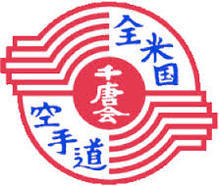Chito-Ryu Karate-Do

Karate, which translates as empty hand, is a devastating form of unarmed combat. Chito-Ryu Karate is a traditional form of Okinawan Karate developed by the Okinawan Karate master, Dr. Tsuyoshi Chitose (1898-1984). He based his teachings on his extensive study of Okinawan Shorei-ryu and Shorin-ryu karate and his medical knowledge of physiology. He combined the strengths of these two systems and eliminated the training elements which were detrimental to the health and well-being of the practitioner. Chito-Ryu Karate is designed to instill confidence and self-discipline while preparing the mind and body to defend against aggressive behavior or assault.
Chito-Ryu means "one thousand year old Chinese style". It offers participants excellent physical conditioning and strong mental discipline, as well as a proven method of self-defense. Instruction at all Chito-Ryu clubs is given by experienced black belt instructors.
No special athletic abilities or flexibility is required to learn karate. Chito-Ryu can be practiced by all ages, regardless of gender. Special accommodations are generally made for those with disabilities, by the instructor, who aims to work with each student's level of ability.
As a martial way, Chito-Ryu karate aims at the development of students' capabilities. With its well designed calisthenics to protect the body from injury and painstaking attention given to the mastery of technique, Chito-Ryu karate develops healthy bodies and sharply focused minds. These qualities are important at all stages of life. Children especially enjoy karate's brisk physical activity, and parents appreciate the discipline it instills in them.
Aims of Chito-Ryu
- To provide the best possible karate training, recognizing that each individual has different physical abilities.
- To help dedicated students progress in the knowledge and skills of karate, maximizing their physical and mental potential.
- The ultimate aim of karate is the perfection of the character of its participants.
Philosophy
Chito-Ryu traditional karate focuses on good manners, self-discipline, physical fitness, and self-defense. Karate begins and ends with courtesy.
The Spirit of Karate
"The ultimate aim of Karate lies not in victory or defeat, but in the perfection of the character of its participants." Gichin Funakoshi, 1869-1957
"Karate-do begins with courtesy and ends with courtesy. If superior to their teachers in skill, the disciples should never forget to respect their teachers. Karate is a life-time practice for a person. Karate training is comparable to the boiling of water over a fire; once the fire ceases to burn the water starts to get cold. Karate is not only for the strong, but particularly suitable for the weak and the handicapped; that through Karate they make up for their shortcomings. The physical strength alone is not true Karate. Sincerity of heart and determination of mind will give a person superiority in Karate." Zenryo Shimabukuro, 1909-1969
Chito-ryu Showa
Ware ware Karate-Do o shugyosurumonowa,
tsuneni, bushido seishin o wasurezu,
wa to nin o motte nashi,
soshite tsutomereba kanarazu tasu.
We who study Karate-Do
Should never forget the spirit of the warrior's way,
Through Peace, Perseverance and Hard Work,
We shall not fail to reach our goal.
- Tsuyoshi Chitose

